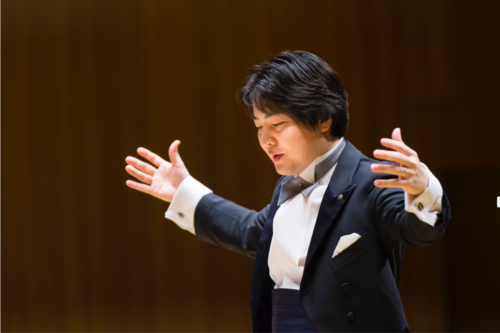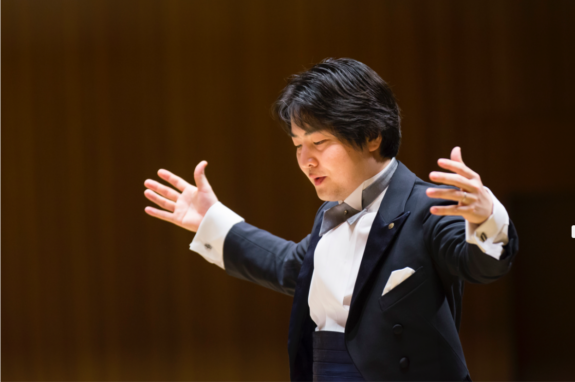 United States Fauré, Fujikura, Ravel: Liv Redpath (soprano), Michael Sumuel (bass-baritone), Heléne Grimaud (piano), San Francisco Chorus (director: Jenny Wong), San Francisco Symphony / Kazuki Yamada (conductor). Davies Symphony Hall, San Francisco, 15.11.2024. (HS)
United States Fauré, Fujikura, Ravel: Liv Redpath (soprano), Michael Sumuel (bass-baritone), Heléne Grimaud (piano), San Francisco Chorus (director: Jenny Wong), San Francisco Symphony / Kazuki Yamada (conductor). Davies Symphony Hall, San Francisco, 15.11.2024. (HS)

Dai Fujikura – ‘Entwine’
Ravel – Piano Concerto in G major
Fauré – Requiem
Given the political fractures in the United States and the left-leaning population of the San Francisco Bay Area, it somehow seems appropriate that the most consoling of orchestral Requiems was on the schedule this week at the San Francisco Symphony. For the most part, Fauré’s beautiful example of the form minimizes the ‘Dies Irae’ and emphasizes the ‘Pie Jesu’.
Two vocal soloists who can soothe with their velvety sounds and a glorious return to the stage by the chorus (performing without a contract as talks go on), all of it pulled together by a guest conductor new to San Francisco, produced forty minutes of pure balm in the first of two performances in Davies Symphony Hall.
Kazuki Yamada holds music directorships at the City of Birmingham Symphony and the Monte Carlo Philharmonic. The Japan-born conductor also has a sort-of tie to this orchestra, having been a protégé of Seiji Ozawa, who helmed the San Francisco Symphony in the 1970s. Those familiar with Ozawa’s style can find elements of it in Yamada’s open-armed approach to climactic moments and insistence on tonal clarity, both of which paid dividends in the Requiem.
Fauré deftly placed the soothing centerpiece, ‘Pie Jesu’, right after the joyful hosannas of the Sanctus (one of the few up-tempo moments in the score). Soprano Liv Redpath approached the music with sweetness, not treacle, and a sincerity and simplicity that lifted the moment as high as it can go. Redpath has been singing prominent roles at the Metropolitan Opera, Santa Fe Opera and Royal Opera House, but this was her first appearance with San Francisco Symphony. It is the only song the soprano sings in the Requiem, but that taste should be enough to earn her a follow-up.
Bass-baritone Michael Sumuel, who has been singing Figaro at the Met and at San Francisco Opera, brought a welcome sense of clarity and dignity to the extended solo in ‘Libera me’.
The chorus, which went on a strike that canceled the season-opening Verdi Requiem in September, returned to the subscription season in great form. Their contract talks with the orchestra’s management are still at an impasse, but director Jenny Wong’s preparation helped make the vocal half of Fauré’s masterpiece the warm, many-faceted hug that it can be. Exposed passages emerged with meaning – here mysterious, there triumphant, but most simply beautiful. The Latin text felt almost conversational.
Organist Jonathon Dimmock added the rich sound of the Ruffatti organ which enhanced the whole effect. For his part, Yamada brought all the aspects together seamlessly. The music rose and fell naturally, both within phrases and over the course of the piece’s arc. The synergy between chorus and orchestra felt just right.
For an opener, Yamada introduced a five-minute piece by a composer he announced as a friend – Dai Fujikura, Japanese-born and currently living in London. ‘Entwine’ was written in 2020, in the first months of the COVID-19 pandemic. Realizing that lockdowns had deprived people of touch, Fujikura focused on music that passed constantly among the different instruments. Melodic lines, chord changes and rhythms, all moving through the orchestra, created a unique sense of movement, all of it highly listenable. It was the U.S. premiere.
That was followed by Ravel’s Piano Concerto in G major which, despite some rather intense playing by the soloist, Hélène Grimaud, never quite came together. The jazzy rhythms in the outer movements landed with little finesse, and the dreamy jazz ballad of the Adagio assai – the true glory of this 1931 piece – clunked with heavy-handed percussiveness rather than the seamless legato Ravel’s music intended.
Harvey Steiman
